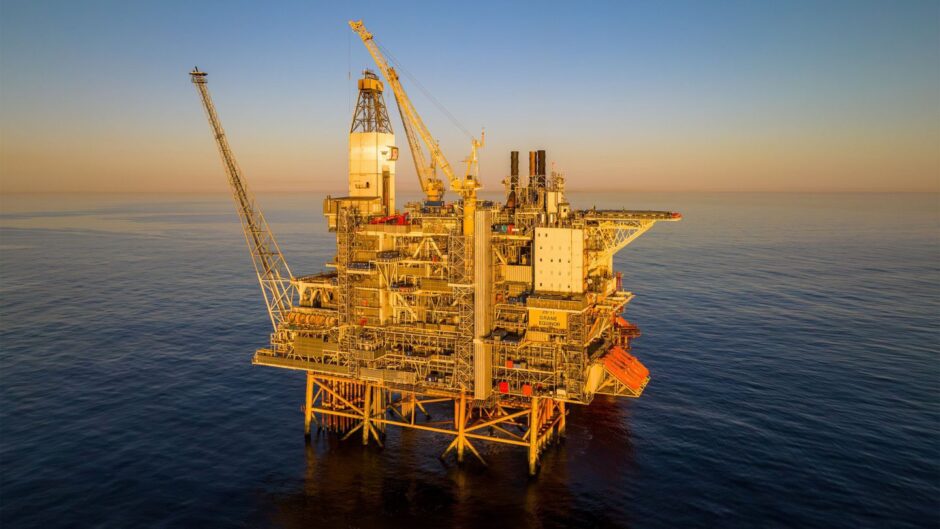
After a court in Norway ruled in favour of climate activists in a case concerning downstream emissions from North Sea oil and gas fields, attention is turning towards similar cases in the UK.
Earlier this month the Oslo District Court ruled in favour of Greenpeace Norway and Young Friends of the Earth in a case centred on the Norwegian government’s approval of development plans at the Breidablikk, Tyrving and Yggdrasil fields.
The court decided the three licences, split between companies including Equinor and Aker BP, were invalid largely due to the lack of consideration given to so-called “downstream emissions”.
The ruling prohibits the Norwegian government from making other decisions relating to the fields which require a valid development plan until the courts determine the validity of their approval.
Equinor began producing from the Breidablikk field last October, while Aker BP is aiming for start up at Yggdrasil in 2027.
While the ruling in Norway will not have any immediate impact on operators in the UK North Sea, environmental campaigners see the decision as a boost to their chances of success in similar upcoming cases over the Jackdaw and Rosebank developments.
‘Significant decision’
Aberdeen University senior lecturer in energy law Dr Daria Shapovalova told Energy Voice the recent ruling in Norway is a significant decision.
“It is a significant decision that adds to the growing case law and the turn in the regulatory and judicial understanding on the scope of the environmental impact assessment and downstream emissions,” Dr Shapovalova said.
“We see this trend in global climate law as well, with COP28 including fossil fuels phase-down in the Global Stocktake document.”
In a recent article, Dr Shapovalova said until this decision, and despite previous legal challenges, regulators and courts in oil-producing countries like Norway and the UK have been reluctant to make firms account for the emissions that come from burning the fuels they produce.
“Although the judgment only applies to Norway and its implication should not be overstated, it could seed similar arguments in climate litigation elsewhere,” Dr Shapovalova said.
“This could force governments to consider how drilling for and burning new oil and gas will really affect climate change.”
Will UK courts follow suit?
Norway’s energy ministry will most likely appeal the ruling, Dr Shapovalova said, and it could take considerable time to reach the country’s Supreme Court for a final decision.
While there are many differences between legal systems in the UK and Norway, Dr Shapovalova said UK courts often cite decisions from other jurisdictions as a ‘matter of fact’ rather than as a legal precedent.
North Sea operators will be looking to the outcome of upcoming cases, including challenges to Rosebank and an onshore oil development in Surrey for greater certainty on the need to account for downstream emissions.
Dr Shapovalova said the outcomes of these cases “could change the assessment process for all fossil fuel projects”.
Norway case ‘could be pivotal’ to Rosebank
One of the environmental campaign groups involved in the Rosebank challenge is already taking hope from the decision in Norway.
Writing in The Guardian, Uplift executive director and climate lawyer Tessa Khan said the “historic legal victory in Oslo has boosted our campaign against the Rosebank field and other British drilling projects”.
“The judgment in Norway has set an example that provides fertile ground for the government’s position to be challenged in UK courts,” Ms Khan said.
“The impact of this case could be pivotal as it will probably influence the approach that lower courts take to a number of other cases that have been brought on similar grounds, including our challenge to Rosebank and an additional challenge by Greenpeace to Shell’s Jackdaw gas field.”
Ms Khan said the oil and gas industry can “no longer assume that courts will overlook the true climate impact of new oil and gas fields”.
“If Norway can do it, then so can we,” she said.
Government will “robustly defend” Rosebank challenge
In response to the Greenpeace and Uplift case, a government spokesperson previously told Energy Voice: “We strongly reject these claims and will robustly defend any such challenge.
“The UK is a world leader in reaching net zero – cutting emissions faster than any other major economy – and as the independent Climate Change Committee recognises, we will still need oil and gas as part of our energy mix.
“We will continue to back the UK’s oil and gas industry, which underpins our energy security, supports up to 200,000 jobs, and will provide around £50 billion in tax revenue over the next 5 years – helping fund our transition to net zero.”
Meanwhile, a spokesperson for the NSTA said: “We do not comment on ongoing legal issues.”

 © Supplied by University of Aberdeen
© Supplied by University of Aberdeen © Supplied by Teekay
© Supplied by Teekay © Uplift
© Uplift